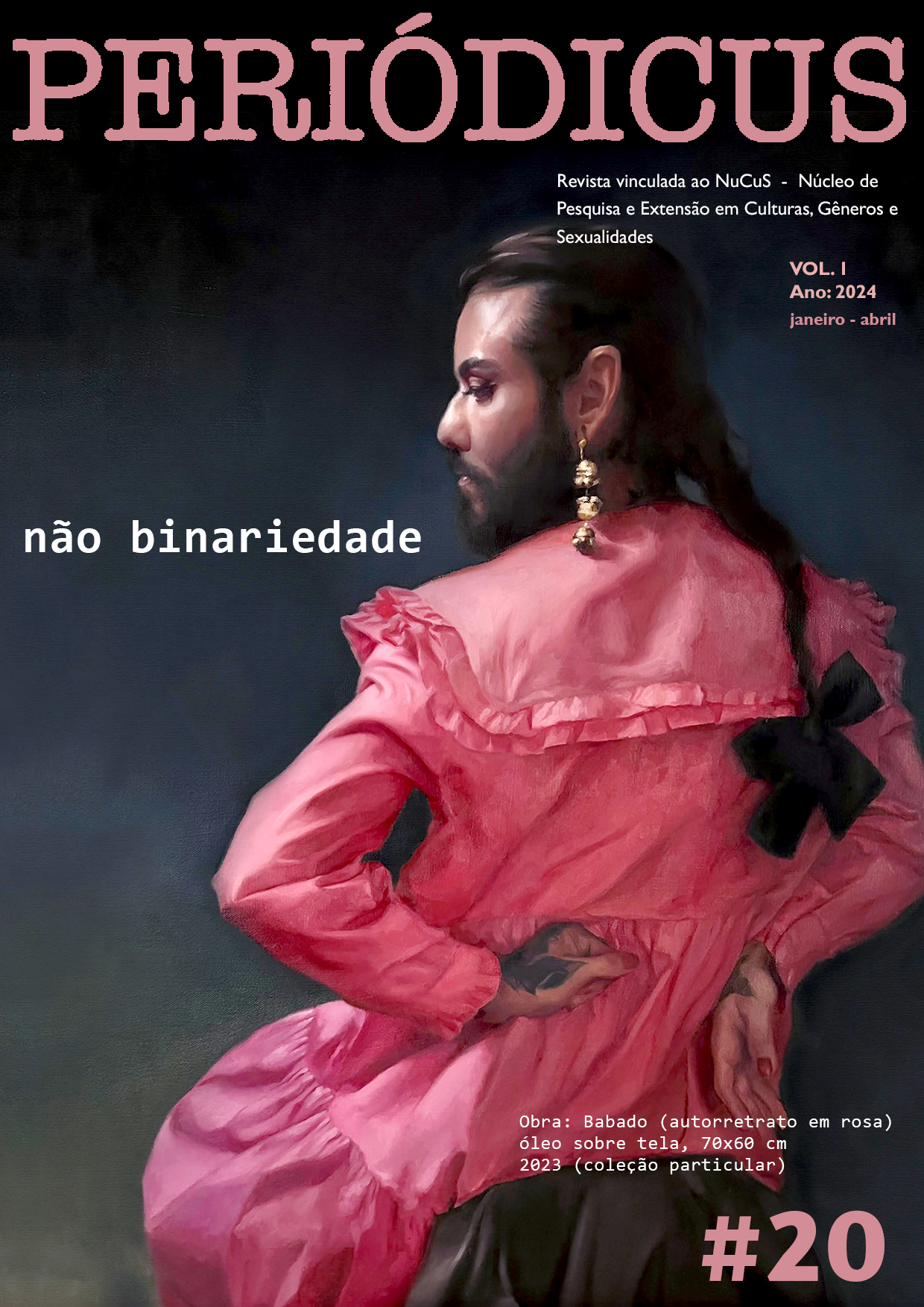Projetos de lei brasileiros sobre linguagem não-binária
DOI:
https://doi.org/10.9771/peri.v1i20.54771Resumo
Este artigo é parte das práticas de socialização da pesquisa Linguagem não-binária no Brasil: disputas e tensões em discursos legislativos, que tem como objetivo identificar a construção de sentido sobre a linguagem não-binária de gênero em textos legislativos brasileiros (projetos de lei federais e estaduais) proibicionistas sobre esse uso linguístico. Em princípio, fizemos leitura bibliográfica das referências e realizamos a coleta do corpus. Identificamos as informações referentes à produção e circulação dos dados coletados e analisamos dados contextuais demonstrando que atualmente tramitam quinze projetos de lei na câmara federal e quarenta e oito projetos nas assembleias legislativas de todos os estados e do Distrito Federal. Em suas ementas observamos o predomínio de justificativas que impedem a linguagem não-binária argumentando que ela prejudica o ensino do português brasileiro, bem como ameaça o uso de nosso idioma.
Downloads
Downloads
Publicado
Como Citar
Edição
Seção
Licença
Copyright (c) 2024 Iran Melo, Gustavo Paraiso

Este trabalho está licenciado sob uma licença Creative Commons Attribution-NonCommercial 4.0 International License.
Autores que publicam nesta revista concordam com os seguintes termos:
Autores mantêm os direitos autorais e concedem à revista o direito de primeira publicação, com o trabalho simultaneamente licenciado sob Licença Creative Commons Attribution Noncommercial que permite o compartilhamento do trabalho com reconhecimento da autoria e publicação inicial nesta revista, sendo vedado o uso com fins comerciais.
Autores têm autorização para assumir contratos adicionais separadamente, para distribuição não-exclusiva da versão do trabalho publicada nesta revista (ex.: publicar em repositório institucional ou como capítulo de livro), com reconhecimento de autoria e publicação inicial nesta revista.
Autores têm permissão e são estimulados a publicar e distribuir seu trabalho online (ex.: em repositórios institucionais ou na sua página pessoal) a qualquer ponto antes ou durante o processo editorial, já que isso pode gerar alterações produtivas, bem como aumentar o impacto e a citação do trabalho publicado (Veja O Efeito do Acesso Livre).








